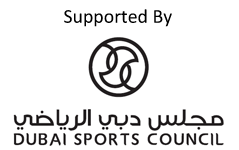There is no doubt that UAE is different from many Western countries. For the region it probably is the most Western-like culture, however players and visitors have to be tolerant and accepting of local customs and laws.
Dubai’s policy on drugs and alcohol
Dubai has a thriving nightlife and alcohol is widely available at restaurants, bars and nightclubs. Drinking outside of these licensed establishments is illegal. The legal drinking age in Dubai is 21 and 18 in Abu Dhabi. While there is a legal requirement for tourists to obtain a license to drink alcohol, it is extremely rarely enforced.
It is difficult to purchase alcohol at a store in Dubai without a drinking license (only available for non-Muslims), but tourists can purchase alcohol at Dubai Duty Free and bring it into the country. Four liters of wine, four liters of spirits and 24 cans of beer can be brought into the country for each passenger.
The UAE has a zero-tolerance policy for public drunkenness or drunk driving.
Drugs of any kind are strictly prohibited. Penalties for possession of even residual amounts of drugs, including marijuana, can be severe. The UAE is also very strict about bringing in prescription drugs, even those that are legal in your home country (a full list of controlled medicines can be found here).
If you intend to bring in a prescription medicine that is banned by the UAE, you must carry the medicine in its original packaging, your prescription and a detailed medical report. Both documents must be notarised. You are not allowed to bring in more than a three months’ supply.
Homosexuality and general public behavior
Public displays of affection are considered offensive. Sex outside of marriage and homosexuality are also illegal, though prosecution of these offenses is very rare, especially among tourists and western expatriates.
“Offensive behavior” – including swearing, rude gestures and insults – can land you in trouble with the law.
Dress code in Dubai
While an official dress code is not in place in Dubai, visitors are expected to respect local traditions and avoid offending the local population. On the beach, bathing suits of all kinds are common, ranging from skimpy bikinis to full coverage suits with headscarves for women. On the streets and in public spaces, particularly malls, visitors are requested to wear clothing that covers the shoulders and knees. Transparent or tight clothing is not recommended. Please note, however, that these are merely guidelines.
Safety
The crime rate in the UAE is very low, and “violent criminal acts remain a rare occurrence in Dubai,” according to the US State Department. Political violence and terrorist attacks are also extremely unlikely.
Women in Dubai
Unlike other countries in the region, women hold significant positions in the government, on the boards of local businesses and can be found working in nearly every profession. Women make up more than 70 percent of the students enrolled in UAE universities and wearing the traditional local dress – called an abaya and shayla – is not a requirement.
Banned items
Apart from medicine, drugs and alcohol, other banned items include pornographic material, non Islamic religious pamphlets for missionary activities, fireworks, ivory, weapons & ammunition, chemical and organic fertilizers, laser pens, radar jammers/other unauthorized communication devices, endangered animal species, and any objects, sculptures, paintings, books or magazines which do not adhere to the religious and moral values of the UAE. Also be careful of carrying in poppy seeds which are banned, so avoid accidentally carrying bakery products that might contain such seeds. There is also an indication that cooked and home-made foods are not allowed.
More information at the Dubai Customs website and the government of Dubai website.























